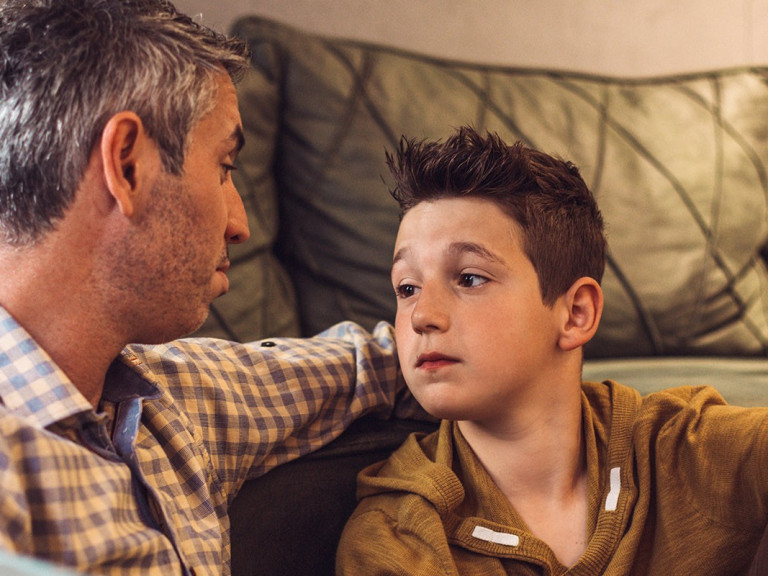Trauma and Resilience: Discovering Your Ability to Bounce Back
Trauma is part of human existence. We all experience trauma, whether it's in our childhood or once we become adults. But trauma and resilience go hand in hand. It's often through our worst moments that we discover our sense of inner strength and grit.
For some people, traumatic events can lead to apparent long-term effects like anxiety, depression, and Post Traumatic Stress Disorder or PTSD. For others, the effects of trauma may not be as pronounced or obvious but can still be quite unsettling.
It’s important to recognize that all traumas can be distressing and difficult. However, talking with someone about your feelings can increase your resilience and help you find closure and strength to move forward. At Goodman Psychologist Associates, we offer the support you need.
What is Trauma?
What exactly is trauma? Most think we know what “trauma” is supposed to look like. We may think of veterans returning from war or people who have been through major events like natural disasters. But trauma can be much more common. The word trauma is derived from the Greek word for wound. Trauma is just that—an injury to our psyche. While the wound may heal, it can still leave a scar, and we may feel memories of that trauma whenever a reminder comes up.
The American Psychological Association defines trauma as "...an emotional response to a terrible event,” which explains all those difficult, unsettling experiences outside our "normal" day-to-day life. Not every person who experiences a traumatic event will experience emotional effects. Conversely, the emotional reaction to events that some may consider mild can trigger traumatic effects in others.
Repeated exposure to certain hurts can also lead to a buildup of trauma. For example, when a child is constantly bullied, ignored, put down, or ostracized, it can damage their sense of self-worth and eventually lead to a trauma response. These experiences can derail everyday functioning and interfere with happiness and quality of life. Eventually, these incidents can lead to or exacerbate mental health disorders like depression or anxiety.
It's also important to note that there is a difference between stress and trauma, although both can greatly impact our lives. Traumatic experiences are stressful, but not all stressful situations are traumatic. Take, for example, running a marathon; while it’s mentally and physically taxing, it is ultimately a rewarding and positive experience.
How Do I Know if It’s Trauma?
The truth is that you should address any stress interfering with your daily life, whether it explicitly fits the definition of trauma or not. Often people, especially children, may not be able to pinpoint what caused their trauma response or why they are feeling a certain way.
People aren’t always aware of the many ways trauma and stress can impact their mental health. Trauma doesn't always come from extreme situations like witnessing a mass shooting, being in a war, or being assaulted. Sometimes trauma really is "death by 1000 cuts." It's not being seen, heard, or helped by those around you that are supposed to be caring for you. Trauma can come from certain events that bring up or "trigger" events from the past without an obvious clear-cut connection.
Families pass down generational traumas. Some traumatic situations may seem almost comfortable and familiar or "just the way things are." With the help of a counselor or therapist, you can examine some of these family systems and generational situations and learn how to disrupt and reset the pattern.
If you suspect you or your child has experienced trauma or stress that may be interfering with the enjoyment of daily activities, you can watch for the following symptoms:
- Avoidance behaviors, such as avoiding social situations that trigger anxiety.
- Sleep disruptions and exhaustion.
- Feelings of worry or hyper-vigilance to ensure that the trauma doesn’t occur again.
- Feeling easily upset or anxious over events that don’t seem obviously triggering.
- Sudden emotional outbursts, including anger, tearfulness, or fear.
- Disassociation or a feeling of being numb, detached, or outside your body.
- Trouble with memory and focus.
- Low self-esteem, destructive behaviors, and self-harm.
- Physiological symptoms like generalized aches, pains, and reduced immune systems.
- Sudden weight loss or sudden weight gain.
Of course, trauma and stress responses can come in other forms as well. If you are feeling impacted by trauma or stressors in your life, it's essential to reach out to a professional. They can help you explore where these feelings are coming from and how to address them in a way that helps you move forward comfortably.
Building Resilience to Trauma
So, how do we overcome trauma and build our resilience? People often think they're either born resilient and strong or weak and unable to cope. But the reality is that any of us can build our resilience. It's a skill that we nurture and develop.
The other misconception about resilience is that resilient people always feel good or happy. Resilience doesn't mean you always feel good in the moment or aren't affected by stress. Part of becoming more resilient to trauma is learning how to allow yourself to fully "feel" your emotions and go through the experience.
If we go back to thinking of trauma as a wound, sometimes we have to allow wounds to air out and heal rather than keeping them under a bandage. We may need to apply a salve or treat injuries with antibiotics. We can care for our bodies to build up our strength and immunity. Getting proper sleep, nutrition, and support will allow us to heal faster and more thoroughly.
Similarly, to overcome a stressful or traumatic experience, we must give ourselves time to heal and the proper tools. Some of these tools can come from within (some are similar to the measures we would take for physical health and healing). Other situations may require us to reach out to a therapist or counselor for support.
In the book, Resilience: The Power to Bounce Back When the Going Gets Tough, Frederic Flach, MD, mentions several steps on the path from trauma to resilience. These steps include:
- Looking at the Experience in a New Light: By reframing our experience, we can get a different perspective. For example, when working with a counselor or therapist, they may have you write out your experience, imagine if it had happened to a friend, or talk it through until it becomes less emotional and encompassing.
- Finding a Support System: A counselor or therapist can offer support during times of crisis. Friends, family members, and support groups can also provide a sounding board to discuss feelings and experiences. Often relating to someone else can help us process our own trauma.
- Regaining a Sense of Control Over Our Lives: One truth about resilient people is that they often feel they have control over their path forward. As a result, they often have a sense of self-efficacy or the belief that they can effectively accomplish their goals and play an active role in healing.
- Working on Self-Respect: Self-respect or healthy self-esteem is crucial for moving forward, but it can be hard to restore those feelings of confidence when knocked down and damaged. One step to resiliency is learning to appreciate who we are and discover our inner strengths.
- Reflecting and Learning: Building resilience is a learning process. We may have to look over the past and accept our role in our circumstances. We may also have to be flexible and open to new approaches and ideas for dealing with our stressors and problems.
Books like Dr. Flach’s and The Body Keeps the Score: Brain, Mind, and Body in the Healing of Trauma by Bessel van der Kolk M.D. offer resources and tips for overcoming trauma and building our resilience to life’s disruptions. We all possess the ability to develop resilience. It doesn’t mean that we don’t experience tragedy in our lives, but it gives us practical, measured ways to deal with the issues as they arise.
Working with a professional mental health counselor or therapist is one of the most powerful steps you can take to build resilience. A therapist is someone in your corner who can help you navigate through life's battles. If you're looking for someone to help you build resilience and address past trauma, please reach out to a member of our team today.
Want To Learn More?












![Danca_Gina_2[42]](https://goodmanpsych.com/wp-content/uploads/freshizer/e00607ea6c3f8baac1c3ed5d3a488d6f_Danca_Gina_242-768-768-c-90.jpg)

























